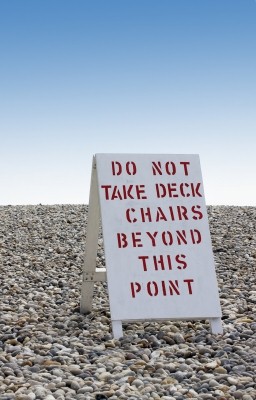 I’m waiting to pay at the supermarket check-out. I can feel the guy behind me’s breath on the back of my neck. From time to time the corner of his basket digs into my right kidney. He huffs, puffs and sighs.
I’m waiting to pay at the supermarket check-out. I can feel the guy behind me’s breath on the back of my neck. From time to time the corner of his basket digs into my right kidney. He huffs, puffs and sighs.
This man is in my personal space!
It is usually fairly easy to tell when someone invades our physical personal space. When they stand too close or lay an unwelcome hand on our arm, we start to feel irritated, even alarmed. The invisible physical barrier surrounding us has been breached. We might edge away, taking our feelings of discomfort with us. Or, if we’re feeling particularly brave, ask them to back off.
But what happens when people invade our emotional space? And what does our emotional space look like?
For physical space, I like to imagine a line drawn around my body a few inches away. It is a body-shaped space and only certain trusted people are allowed to cross the line without invitation. For emotional personal space, the boundaries are much more difficult to define. What is my shape, what will I allow others to say or do in my presence and what will I not? What happens when my limits are at odds with other people’s expectations?
We are not required to accept how others treat us without question. If a friend calls us at all hours of the day wanting to talk about their own problems but never listens to us when we are feeling low or vulnerable, we are not obliged to fit around what they want every time. We can retain our own shape, our own limits of what time we will or will not devote to listening.
Sometimes we learn as children that it is our role to prioritise others’ needs above our own. This pattern of behaviour becomes so ingrained and familiar that we don’t even realise we are doing it. When we do take a stand and say ‘no’ to someone’s request it may leave us with strong feelings of guilt. Fitting around the other person’s needs may seem more attractive – at least in the short term – compared to holding our own shape and dealing with uncomfortable feelings that we’d rather avoid.
The counselling process can help us to define our personal emotional shape. Through it we can discover patterns of relating that are holding us back, make changes and learn to deal with the consequences of such changes.
Image courtesy of Simon Howden: FreeDigitalPhotos.net
